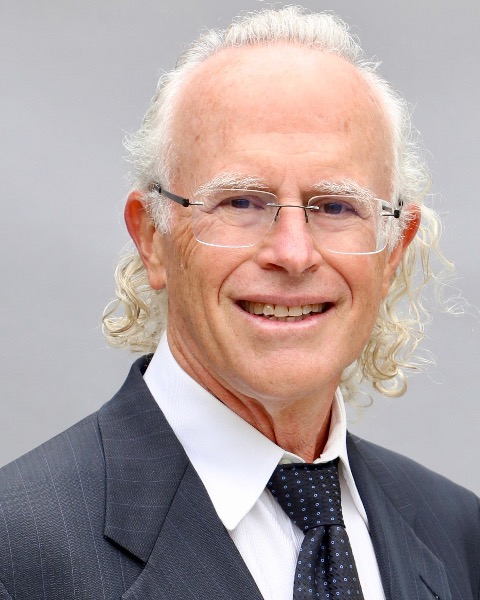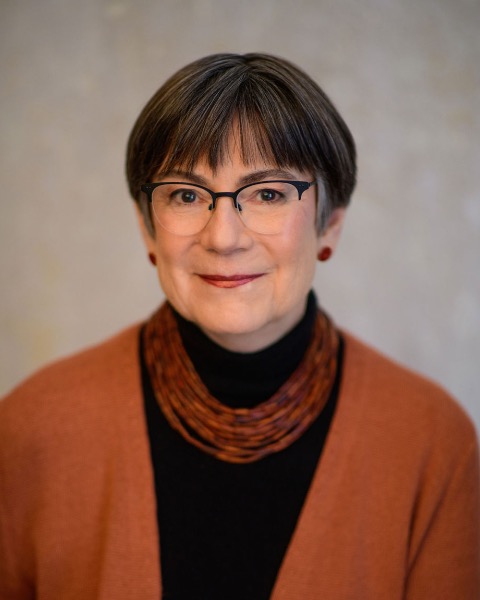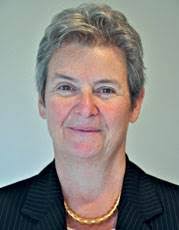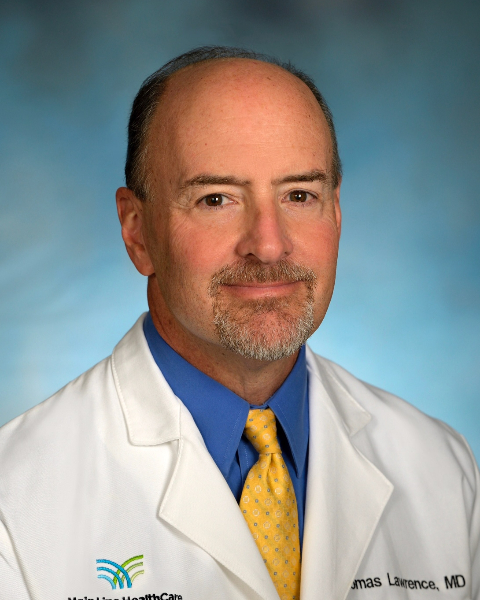Leadership Skills for Knowledgeable, Engaged & Effective Medical Directors: Four Perspectives
1.50 CME / 1.50 CMD Management / 1.50 MOC
This symposium will feature four recognized leaders in PALTC, each discussing a different aspect of leadership. The first presenter will discuss various styles of leadership and review the literature on the effectiveness and impact of leadership styles on outcomes in PALTC settings. The second presenter will explore how leadership manifests itself in the daily work of the medical director. The third speaker will discuss how adversity and leadership are often intertwined, linking the concept to examples within PALTC settings. The fourth presenter will discuss opportunities for PALTC medical directors to expand their leadership experience and capacity within local, state, regional, and national venues. The overarching theme of the symposium is that opportunities for leadership are ubiquitous. The capacity for leadership is inherent but needs conscious development. Several case studies will be presented, with audience polling questions and time for robust discussion.
Learning Objectives:
- Explore various leadership styles and how to apply them effectively.
- Gain perspective on the interconnectedness of adversity and leadership, the "crucibles" of leadership.
- Recognize the ubiquitous opportunities for leadership within the daily work of the medical director.
- Seek out leadership roles in facility, local, regional, state, and national venues.
Presenters:
 Michael Wasserman, MD, CMD, is a graduate of the University of Texas, Medical Branch. He completed an Internal Medicine residency at Cedars-Sinai Medical Center and a Geriatric Medicine Fellowship at UCLA. Dr. Wasserman has been a tireless advocate for vulnerable older adults during the COVID-19 pandemic, with multiple peer reviewed publications and television appearances. He is involved with the National Advisory Committee on Seniora and Disasters and previously served as a member of the National Academy of Science’s “A Framework for Equitable Allocation of Vaccine for the Novel Coronavirus” Committee. He is Editor-in-Chief of Springer’s upcoming textbook, Geriatric Medicine: A Person Centered Evidence Based Approach. He previously served as CEO overseeing the largest nursing home chain in California. Prior to that, he was the Executive Director, Care Continuum, for the CMS contracted Quality Improvement Organization for California. In 2001, he co-founded Senior Care of Colorado, which became the largest privately owned primary care geriatrics practice in the country, before selling it in 2010. In the 1990’s he was President and Chief Medical Officer for GeriMed of America, a Geriatric Medical Management Company, and developed GeriMed’s Clinical Glidepaths in conjunction with Drs. Flaherty and Morley of St. Louis University’s School of Medicine Geriatric Division. In 1989, in the Journal of the American Geriatrics Society, Doctor Wasserman published "Fever, White Blood Cells and Differential Count in Diagnosing Bacterial Infection in the Elderly,” the findings of which are now part of the McGeer Criteria, used widely in nursing homes to evaluate residents for infections.
Michael Wasserman, MD, CMD, is a graduate of the University of Texas, Medical Branch. He completed an Internal Medicine residency at Cedars-Sinai Medical Center and a Geriatric Medicine Fellowship at UCLA. Dr. Wasserman has been a tireless advocate for vulnerable older adults during the COVID-19 pandemic, with multiple peer reviewed publications and television appearances. He is involved with the National Advisory Committee on Seniora and Disasters and previously served as a member of the National Academy of Science’s “A Framework for Equitable Allocation of Vaccine for the Novel Coronavirus” Committee. He is Editor-in-Chief of Springer’s upcoming textbook, Geriatric Medicine: A Person Centered Evidence Based Approach. He previously served as CEO overseeing the largest nursing home chain in California. Prior to that, he was the Executive Director, Care Continuum, for the CMS contracted Quality Improvement Organization for California. In 2001, he co-founded Senior Care of Colorado, which became the largest privately owned primary care geriatrics practice in the country, before selling it in 2010. In the 1990’s he was President and Chief Medical Officer for GeriMed of America, a Geriatric Medical Management Company, and developed GeriMed’s Clinical Glidepaths in conjunction with Drs. Flaherty and Morley of St. Louis University’s School of Medicine Geriatric Division. In 1989, in the Journal of the American Geriatrics Society, Doctor Wasserman published "Fever, White Blood Cells and Differential Count in Diagnosing Bacterial Infection in the Elderly,” the findings of which are now part of the McGeer Criteria, used widely in nursing homes to evaluate residents for infections.
 Rebecca Elon, MD, MPH, CMD, is an Associate Professor of Medicine, serving on the part-time, voluntary faculty within the Division of Geriatric Medicine at the Johns Hopkins University School of Medicine. She is CMO Emerita and Senior Medical Consultant for FutureCare Health and Management Corporation. She serves on the executive committee of the American Board of Post-Acute and Long-term Care Medicine and is a member of the AMDA-The Society of PALTC Medicine Core Curriculum faculty. She is a board member of the Wisconsin Society of Post-acute and Long-term Care Medicine.
Rebecca Elon, MD, MPH, CMD, is an Associate Professor of Medicine, serving on the part-time, voluntary faculty within the Division of Geriatric Medicine at the Johns Hopkins University School of Medicine. She is CMO Emerita and Senior Medical Consultant for FutureCare Health and Management Corporation. She serves on the executive committee of the American Board of Post-Acute and Long-term Care Medicine and is a member of the AMDA-The Society of PALTC Medicine Core Curriculum faculty. She is a board member of the Wisconsin Society of Post-acute and Long-term Care Medicine.
 Susan Levy, MD, CMD, is a multi-facility Delaware medical director and consultant in Delaware. Dr. Levy is also the geriatric medicine coordinator for the Bayhealth Internal Medicine residency program in Delaware. She provides medical advisory services to the DHCQ in her state. She is a former President of AMDA- The Society for PALTC as well as the Mid-Atlantic Medical Directors Association. Prior to moving to Delaware, she served as a Vice President of Medical affairs for a multi-level post acute care campus in Baltimore. Sher currently chairs the AMDA PALTC Foundation.
Susan Levy, MD, CMD, is a multi-facility Delaware medical director and consultant in Delaware. Dr. Levy is also the geriatric medicine coordinator for the Bayhealth Internal Medicine residency program in Delaware. She provides medical advisory services to the DHCQ in her state. She is a former President of AMDA- The Society for PALTC as well as the Mid-Atlantic Medical Directors Association. Prior to moving to Delaware, she served as a Vice President of Medical affairs for a multi-level post acute care campus in Baltimore. Sher currently chairs the AMDA PALTC Foundation.
 Thomas Lawrence, MD, CMD, is System Medical Director of Geriatric Medicine and Long Term Care for Main Line Health System in suburban Philadelphia. He is a multi-facility LTC Medical Director. He is also currently the Faculty Chair of the AMDA Core Curriculum on Medical Direction. In addition, he currently serves as the Vice Chair of the American Board of Post -Acute and Long-Term Care Medicine.
Thomas Lawrence, MD, CMD, is System Medical Director of Geriatric Medicine and Long Term Care for Main Line Health System in suburban Philadelphia. He is a multi-facility LTC Medical Director. He is also currently the Faculty Chair of the AMDA Core Curriculum on Medical Direction. In addition, he currently serves as the Vice Chair of the American Board of Post -Acute and Long-Term Care Medicine.
Credit Information:
Activity Created 3/2023
Credits Available Until 3/2026
- 1.5 CME
- 1.5 CMD Management
- 1.5 MOC
Credit Statements:
CME: AMDA – The Society for Post-Acute and Long-Term Care Medicine designates this enduring material for a maximum of 1.5 AMA PRA Category 1 Credit(s)TM. Physicians should only claim credit commensurate with the extent of their participation in the activity.
AMDA – The Society for Post-Acute and Long-Term Care Medicine for Post-Acute and Long-Term Care Medicine is accredited by the Accreditation Council for Continuing Medical Education (ACCME) to provide continuing medical education for physicians.
CMD: This self-study activity has been pre-approved by the American Board of Post-Acute and Long-Term Care Medicine (ABPLM) for a total of 1.5 management hour(s) toward certification or recertification as a Certified Medical Director (CMD) in post-acute and long-term care medicine. The CMD program is administered by the ABPLM. Each physician should claim only those hours of credit actually spent on the activity.
ABIM Maintenance of Certification (MOC): Successful completion of this CME activity, which includes participation in the evaluation component, enables the participant to earn up to 1.5 Medical Knowledge MOC points and patient safety credit in the American Board of Internal Medicine’s (ABIM) Maintenance of Certification (MOC) program.
Participants will earn MOC points equivalent to the amount of CME credits claimed for the activity. It is the CME activity provider’s responsibility to submit participant completion information to ACCME for the purpose of granting ABIM MOC credit.
Visit the Continuing Education page for information on if and how you can claim credit/hours for AMDA’s education.
Disclosure Information:
The Society requires the disclosure of all speaker/faculty/planner’s relevant financial relationships; presence of off-label use of a device or medication; and discussion of any experimental, new or evolving topic prior to each accredited education activity.
If the learner perceives any bias toward a commercial product or service, advocation of unscientific approaches to diagnosis or therapy, or recommendation, treatment, or manners of practicing healthcare that are determined to have risks or dangers that outweigh the benefits or are known to be ineffective in the treatment of patients please report this to the Society’s staff.
- Julie Gammack, MD, CMD (Planner & Speaker): Stockholder: Amarin
- Kenya Rivas Velasquez, MD, CMD, FAAFP (Planner & Speaker): OptumRx: Stockholder
- All other planners, speakers, and AMDA staff have no relationships with ineligible companies.
All relevant financial relationships have been identified and mitigated.